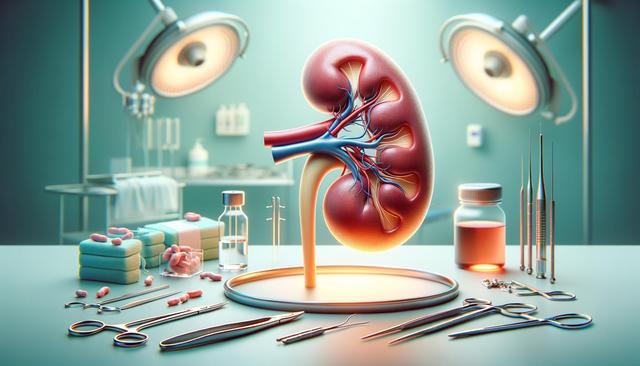How Kidney Transplants Work and Who Qualifies
The process of a kidney transplant involves surgically placing a healthy kidney from a donor into a person whose kidneys are no longer functioning properly. This treatment is typically recommended for those with end-stage renal disease (ESRD), where the kidneys have lost about 90% of their ability to function. To qualify, recipients must undergo a comprehensive evaluation that includes medical, psychological, and social assessments.
Eligibility is determined by various factors, such as:
- Overall health and ability to undergo surgery
- Absence of active infections or cancers
- Commitment to following post-transplant care routines
Understanding how kidney transplants work and who qualifies helps patients and their families prepare for the journey ahead and make informed decisions about treatment.
Understanding Transplant Waiting Lists
One of the most complex elements of the transplant process is placement on a waiting list. Patients who do not have a living donor are placed on a national registry, where they wait for a compatible deceased donor kidney. The waiting time can range from months to several years, depending on a variety of factors.
These factors include:
- Blood type and tissue match
- Geographic location and organ availability
- Medical urgency and time spent on dialysis
The goal of understanding transplant waiting lists is to help patients manage expectations and explore all possible avenues for receiving a kidney, including living donation.
How Living Kidney Donation Is Matched
Living kidney donation can significantly reduce the waiting time for a transplant. In this process, a healthy individual donates one of their kidneys to a recipient. Matching a living donor involves several steps to ensure compatibility and the best possible outcome.
The process includes evaluating:
- Blood type compatibility
- Human leukocyte antigen (HLA) matching
- Crossmatch testing to check for harmful antibodies
Learning how living kidney donation is matched gives potential donors and recipients a clearer picture of the medical checks and ethical considerations involved in the decision.
Kidney Donor Compatibility Process
The compatibility between a donor and recipient is essential for transplant success. The kidney donor compatibility process encompasses both biological and immunological testing to ensure the recipient’s body will accept the new organ. Even with excellent matches, medications and monitoring are required to prevent rejection.
Key compatibility factors include:
- ABO blood group compatibility
- HLA antigen match – the closer the match, the lower the rejection risk
- Negative crossmatch results
Understanding the kidney donor compatibility process is crucial for both patients and donors, as it directly influences the long-term success of the transplant.
What to Expect During Kidney Transplant Recovery
Recovery after a kidney transplant varies depending on individual health factors and the type of donor (living or deceased). Most patients remain in the hospital for about a week post-surgery, with the new kidney often beginning to function immediately if from a living donor.
Post-operative care includes:
- Monitoring kidney function and surgical site
- Taking immunosuppressive medications to prevent rejection
- Regular follow-up appointments and laboratory tests
Knowing what to expect during kidney transplant recovery helps patients and caregivers prepare for the physical and emotional demands of the healing period.
Factors That Affect Kidney Transplant Costs
The cost of a kidney transplant can be substantial, covering everything from surgery and hospital stays to ongoing medications and follow-up care. Several variables influence the total cost, and understanding these can help patients plan financially or explore assistance options.
Cost-influencing factors include:
- Pre-transplant evaluations and tests
- Donor and recipient surgery costs
- Immunosuppressant medications and long-term care
- Insurance coverage and out-of-pocket expenses
Being informed about the factors that affect kidney transplant costs allows patients and families to make better financial and logistical preparations for the procedure and its aftermath.




Leave a Reply